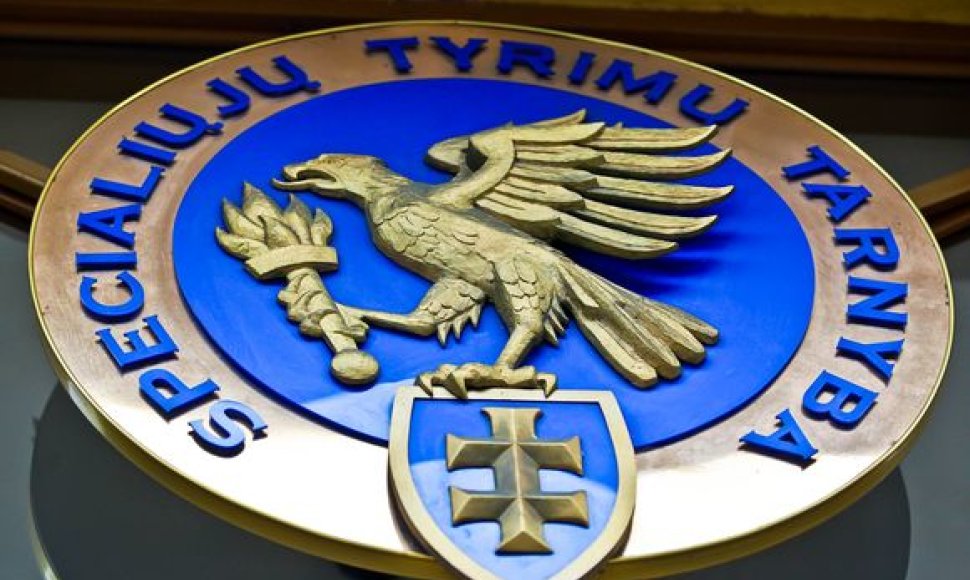SIS cases often start with showy arrests, but then many investigations end in defeat: in 2012, courts hearing SIS cases acquitted even more defendants than before.
In its official report, the SIS gives the following data: 191 preliminary investigations opened during the first six months of 2012, 36 investigations dropped and 25 closed, 46 suspects sentenced. In 2011, 255 investigations, 45 closed, 62 dropped, 71 individuals convicted. Similar numbers are given in the 2010 report.
Observers have noted that SIS officers often make a show of suspects' arrest – they ask the court for warrants to arrest and detain people without it always being necessary. Many a detained suspect is later quietly released, returning to their public post.
“The SIS, set up in 1997, still hasn't established its presence in places with a potential for large-scale corruption, where it could contain it. So it compensates for this failure by putting handcuffs on people and parading them in streets,” Juozas Gaudutis, former SIS chief who led the agency in its infancy, tells 15min.
Mistakes from Daukanto Square
Gaudutis, who now works as a lawyer, believes that the society is wrong in putting all the blame for scandalous failures on SIS operatives alone.
According to him, when investigators gather evidence on a crime, they pass it on to prosecutors, who then decide whether to open a preliminary investigation, how to proceed with it, whom to arrest. “Before they proceed, prosecutors must weigh the evidence they're given and evaluate the prospects of the investigation. Prosecutors alone, and not the SIS, are in charge of arrests and detentions. Yet the society does not know that and blame the service.”
Gaudulis points to the Prosecutor General's Office as the main source of all misconduct. Or, more precisely, Prosecutor General Darius Valys, who was appointed by President Grybauskaitė in 2010.
Gaudutis claims that the Prosecutor General's policy has been to put as many people behind bars as possible and then leave it to the courts to determine whether they are guilty or not. “This way, you can cover up the illiteracy of investigators and prosecutors. The Prosecutor General's Office has a big problem with its head, what we're witnessing today are fruits of mistakes made in Daukanto Square [the President's Office],” he says.
Gaudutis admits that cases when high-profile suspicions lead nowhere do great harm to the agency's reputation. He notes, emphatically, that officers must first establish that the suspect has indeed committed a crime: “If they touch a person, they must be certain he is guilty. Innocent people should not be made go through this.”
Politicians started thinking of establishing a service for large-scale corruption investigation back in 1996, after the end of privatization process. It became apparent that the young state did not have enough resources to investigate cases of national importance. So politicians selected students who spoke foreign languages and sent them to the United States where they were trained by the FBI – the SIS was to be fashioned on the American agency's example.
Gaudutis admits, though, that today's SIS is not what it was intended to be: “I have an opportunity to watch the process from the other side of the barricades, I see those cases in courts. I agree that these are often petty cases, they are opened relying on hearsay and not comprehensive investigation. The SIS was founded to investigate serious cases of bribery that threatened to shake the foundations of the state. It was not set up to catch a market director who took money for a permit to sell eggs. And yet, what we've got now are cases of socks and gloves.”
Nothing to be indignant about
Valentinas Junokas, who headed the SIS between 1999 and 2004, is less inclined to lash the service. “If an institution is under attack, that means that it started applying the law indiscriminately and without exception,” Junokas tells 15min.
Like many SIS officers, Junokas says that if a jobless underdog who is caught stealing a jar of jam gets paraded with handcuffs, so must everyone else: “Everyone is equal before the law. In order to fight corruption, we must go to the top so that we can show to the society that there are no untouchables and prevent them from committing crimes.”
Junokas believes that the public has no reason to feel indignant about handcuffed suspects getting arrested by masked officers – such are the rules of detention and officers must follow them.
The former SIS head, who is now teaching at Mykolas Romeris University, was forced to resign after a high-profile case of double bookkeeping in political parties started with a bang and came to nothing. He believes that the service should be better funded before it can tackle large-scale corruption.
Another former (2004-2007) SIS chief Povilas Malakauskas, who is now senior adviser to the General Commissioner, told 15min he did have an opinion on what was happening at the SIS, but refused to share it.
Lack of money
Last week, SIS management appeared in front of the parliamentary Committee on National Security and Defence, insisting that the agency was under-funded and that this compromised its ability to tackle large-scale bribery cases.
“Political corruption and all that goes with it – business, media – are not being analysed. The SIS does not have resources to monitor and analyse the situation. Besides, such monitoring is now under no-one's duty, everyone's avoiding it,” MP Artūras Paulauskas, chairman of the committee, tells 15min.
He notes that, considering the budget the SIS is forced to work with, the agency is doing a decent job: “If we want better results, we must increase funding. The representatives of the service told us that experienced officers did not want to go work for the SIS – so they were forced to hire students.”
Paulauskas recounts that when the commission inquired about SIS operation methods, the representatives claimed they followed the protocol during arrests: “We asked them whether masks and handcuffs were always necessary. An image of a handcuffed suspect led by masked man sticks in people's minds and is difficult to erase even if court acquits the person.”













